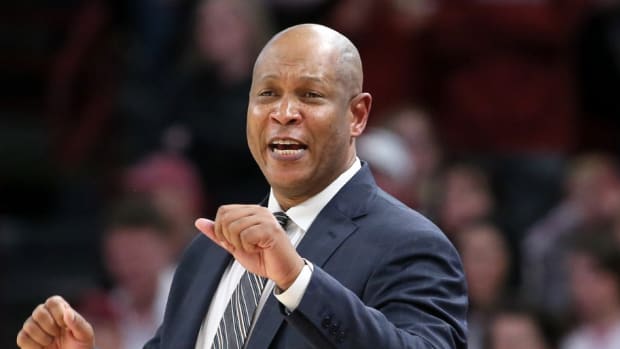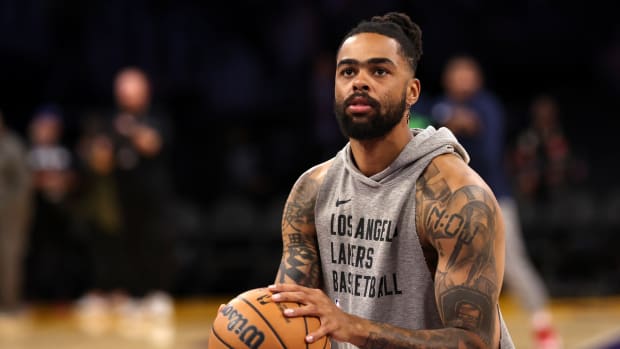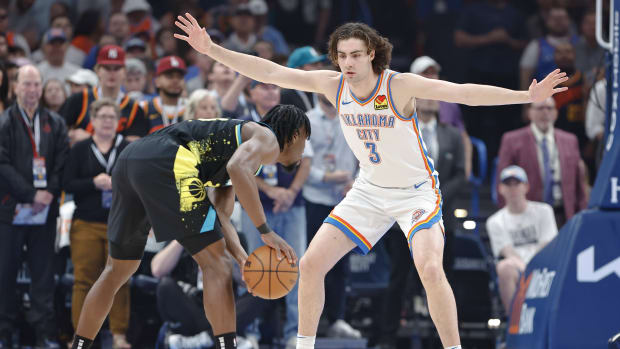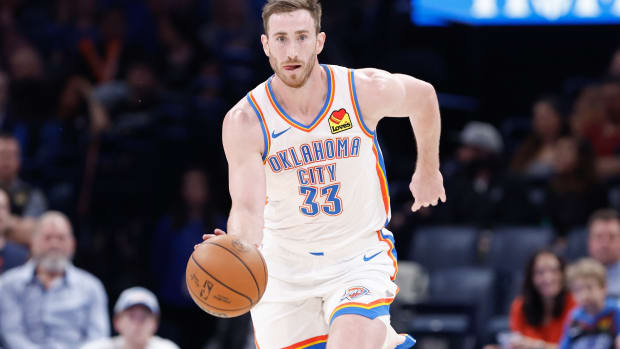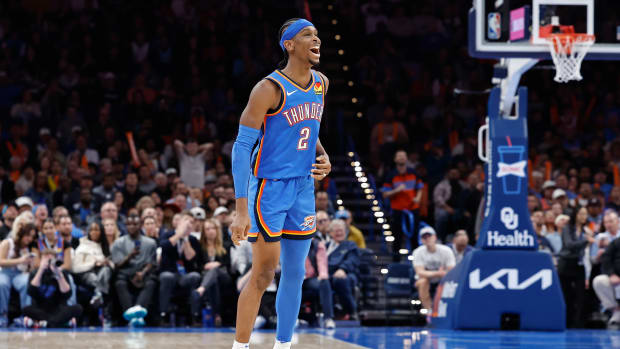Baron Davis On the Importance of Entrepreneurship After Basketball
As Baron Davis enjoyed a 13-year NBA career, he slowly began to prepare for his plan after basketball: To thrive in business. So he regularly sought after intellect from National Executive Director, Michele Roberts and commissioner Adam Silver, former players, and successful entrepreneurs.
“I was looking at a lot of guys who were already doing stuff around basketball anyway, and I was picking their brain,” Davis said.
The two-time All-Star is now the founder of several media corporations, including Sports and Lifestyle in Culture (SLIC), Business Inside the Game (B.I.G), The Black Santa Company, and No Label. Their objective is “to combine creative talent with original publication and production, to provide educational and empowering stories that appeal to global audiences of all ages.” Davis also invests in multiple companies including, Vitamin Water, Kitu Supper Coffee, U-Nest, Hims, Bungalow, Sleeper and Vidy.
Most recently, Davis spoke with Sports Illustrated about his upcoming projects, how he’s working to support and create wealth within minority communities and the NBA’s plan to restart the 2019-20 season amid the coronavirus pandemic.
The following conversation has been edited for length and clarity.
Sports Illustrated: You’ve become a successful entrepreneur. Can you tell me about your projects?
Baron Davis: I found and created the character, Black Sam, and trademarked it. I've built a platform for multicultural storytellers along with a studio where athletes, people of the culture can come and create IP—and then we bring it to market. Like a digital content studio that focuses on IP and content from an insider’s perspective. C.J. Watson wrote a children’s book which we’ll animate.
SLIC is like if sports had their own platform. We are a collaborator and an incubator of content in sports, lifestyle and culture. It's a podcast studio, a publishing site and a short-form content platform with Mary. We like to focus on dope content that comes from the individual, help them formulate it and then make a Quibi or a Netflix show.
Sports Illustrated: What made you decide to pursue your business aspirations while still playing in the NBA?
Baron Davis: I had no choice. Then after I finished playing, I asked myself, am I just going to sit here? What am I going to do with this money? Where is my purpose? It kind of feels like you’re so young and you’re so lost at the same time. And for me, I was like, dude, I need to make sure that I do a good job with this stuff, because my career was cut short.
Sports Illustrated: What kind of projects were you working on while playing?
Baron Davis: When you look back, I directed and produced commercials, collaborated on creative things with Reebok, and signed the first deal with Li-Ning, a Chinese shoe company. So just kind of like looking and searching. When I was 20 years old, I stepped out and created my own sports management company, similar to what LeBron did before he entered the league.
When I was with the Clippers, I started a company. When I was with Golden State, I started a platform that was basically like match.com so kids in the inner city could have mentors. So for me it was just like the serial entrepreneur in me looking at myself as an NBA player, where I was a brand and where my connection was to my fans and the people I could reach.
Sports Illustrated: NBA players of this era have sought and found more opportunities in projects outside of basketball, like LeBron James. Do you feel you don’t receive enough credit for the part you played in this?
Baron Davis: When I retired, I started knocking on doors to get opportunities thinking that, "Hey, I'm from LA. I'm going back to Hollywood, to start making movies." That just didn't happen. The studios were more interested in the new NBA stars who weren't creating film and TV. So sometimes as a pioneer, you just push the culture forward, but you may not get all the opportunities because you're early. Then when the flood gates open, it's almost like you've been in there. But now there’s so many coming through the business that they all want to hear the ideas.
So for me, it was just taking matters in my own hands. A lot of times Hollywood is going to say no and many times sports media is going to say, no. And they’re going to be picky.
Sports Illustrated: Tell me about the summits you hold and why are they are so important to you?
Baron Davis: So Business Inside the Game was really like the foundation of my entrepreneurial career because I wouldn’t be here if I didn't understand the business of my sport. So Business Inside the Game was formed as a platform to allow athletes—both current and past—to be able to talk about their wins in business. We don’t want athletes to go broke anymore. So for us, it was like, man, let's look at the business inside the game of sports and the business inside the game of different industries and let's create a factory. So we created a firm, let's call it a management company that also helps minorities and underserved entrepreneurs.
We connect them with the people they need to connect to, but we also invest and take chances on them. And with this community of like-minded people that speak on various topics, from mental health and sports techs, we use our sports lens to see if we can find the right connective tissue for these young startup companies.
Sports Illustrated: What has your thought process been like as racial injustice becomes a global renowned issue in the United States?
Baron Davis: I feel like with social injustice, its economic injustice. It definitely goes hand-in-hand because the way I looked at the George Floyd situation that was the first time the whole world had to stand still and deal with the fact that there were no opportunities. Where are the opportunities? I don't know what tomorrow looks like. When I wake up with no job, how do I provide for my kids? So that has been the umbrella that our culture has been held under. That's the box that we need to get out of.
Sports Illustrated: What did you think of the massive protests occurring throughout the United States?
Baron Davis: I thought it was incredible. Like this was a nation standing with and standing up for people that have been oppressed for far too long. And the majority of America is saying “Enough of it” and “this is not how we want to move forward.”
Sports Illustrated: I know you experienced riots growing up in Los Angeles. Are there any particular moments from those times that stood out to you?
Baron Davis: I mean, you can never forget. I was a kid growing up in the LA riots so much so that I felt like I was dead smack in its epicenter. So the grocery store that burned down, the buildings that burned down, that all represented what happened in my neighborhood. And when we woke up the next day, we didn’t have a grocery store, or a place to shop. So it took a while, a long, long time for LA to even care about that. And they still don’t care, they’re only doing things to accommodate gentrification. But it took LA a while to even, like, spend money towards making that a better situation.
Sports Illustrated: Were you a fan of National Blackout Day on social media?
Baron Davis: For me, I posed the question, why are we blacking out on a day where there are election votes going on? I believe that was the first day that people could actually go out and vote. I think there's power in social media and sometimes because social media is a great marketing tool, sometimes the message gets lost. And monkey see monkey do at some point, you know?
Sports Illustrated: How important do you believe it is for athletes to use their platforms given to speak out against issues like racial injustice?
Baron Davis: We should be talking about how we are human beings. We live in America. We come from incredible backgrounds and stories, and a lot of the time people only want to hear the story that makes sense for the sport they’re playing. But they don't want to hear about the experiences and the knowledge we have, or the opinions that we have as human beings in this country.
And when you hear somebody say, "Shut up and dribble," it's like, "Huh, like what kind of ..." That one, makes no sense at all. Two, it just shows your immaturity and ignorance. And when you think about the power of sports and the power of athletes pertaining to our culture—the history of our culture, athletes have always been at the forefront—because they're a huge part of what is happening in our society. And despite us having a lot of money or for instance, having a nice car, they still don’t believe it’s yours.
Sports Illustrated: Tell me your personal reaction and thoughts upon hearing about the death of George Floyd?
Baron Davis: When I heard about it, I was in a group chat with Stephen Jackson and some other people and I knew from him. I didn’t know what had happened and I was reacting over Stat. I called Stat and he said, “I am not letting this one go.” It was Stat on his Instagram that kind of got everything going.
Sports Illustrated: Some people think George Floyd changed the world with all that has changed since his death. How much progress has been made to end racial Injustice?
Baron Davis: It’s about the oppressors and where we are as a country. We have done a lot in this period to say, “enough is enough.” It’s now our friends and it's America saying, “you know what, it’s too much.” When you get to a point like that, then that’s where we are.
Sports Illustrated: Despite this national and global movement, it seems like there are a few people that quite don’t get it. Atlanta Dream co-owner Kelly Loeffler recently wrote a letter to WNBA commissioner Cathy Engelbert stating that she doesn’t support the BLM movement and you tweeted out: “Hey I will buy her stake in the team.”
How does one get that message across or what needs to be done for the people at the top of sports and the world so they could understand the value of this?
Davis: It’s either you are in or you are out. I think for someone in her case, she has not been held to a standard that the basketball community would want to relate with and be a part of.
When you look at a lot of the owners who are standing up and speaking out, they do a lot for the community, they do a lot through their players and they do a lot in their own personal. If you look at her track record, she is a taker and there is no way we would want that as representation in our sport, let alone as someone who should be a mentor to our women in that position. She definitely holds that spot and not someone who is very deserving.
Sports Illustrated: Is being a WNBA owner something in your future?
Davis: I will take the spot. I will take the spot for sure. I have a great deal of respect for the women’s game. As a content creator and a marketer, I just think there is so much white space that needs to be realized. I am a huge fan of the game and the women who play, so if I have the opportunity best believe I am going to jump at it.
Sports Illustrated: How do you feel about the NBA’s plan to restart the 2019-20 season? Do you think it will work successfully?
Baron Davis: I have mixed feelings. I hope it will work. I think the NBA is very prepared and organized. We all want it to work because we know the impact of sports. But it’s also a very tough time right now.






























